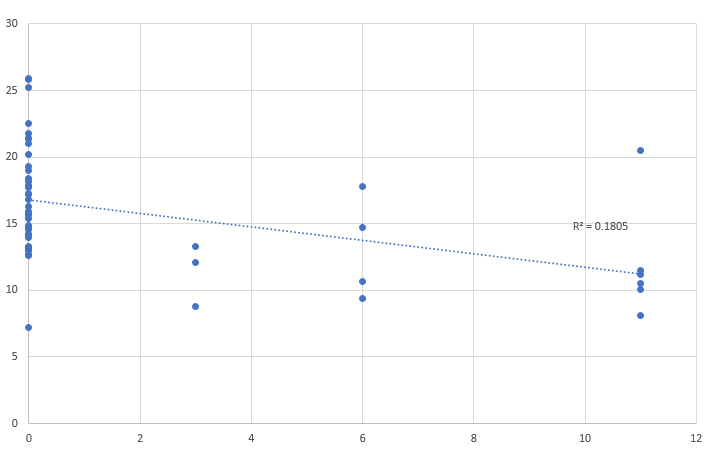Do stronger background checks reduce the incidence of suicide?
This hypothesis is based on the idea that suicide is largely a incident of passion, and someone who is feeling suicidal that is delayed by a firearm background check or other induced waiting period may be far less likely to actually follow through – in other words, not find another method.
To analyze this claim, I’m using the scoring by the Brady Campaign’s state scorecard for 2013 to determine the States with strong background check laws, to compare against States without them and the suicide rates thereof. Brady scored States using one of only four values in their scorecard: 0, 3, 6, and 11. The majority of States are scored at 0. Three States are scored at 3, four are scored at 6, and six States are scored at 11.
- 11 – Requires background check for all unlicensed gun sales (“universal” background checks
- 6 – Requires background checks for unlicensed firearms sales for select firearms only, or only at gun shows
- 3 – Requires a permit to purchase a firearm that is valid for 30 days or less
And 0 means not meeting any of these criteria. For example if a State has a permit requirement for purchase, but the permit is valid for longer than 30 days, they will score a 0. But if they do not have a permit requirement for purchase but do require “universal” background checks, they may score an 11.
Now for the numbers. The suicide rate numbers come from the National Center for Health Statistics for the year 2016. The suicide rates represent overall suicide rates, not just suicide by firearm.

5 of the 6 States scored with an 11 do have low overall suicide rates. Colorado is the outlier, having also been scored an 11, but having a suicide rate of 20.5 in 2016.
But the suicide rates for States that scored an 11 are not significantly lower than States scored at 3. So “universal” backround checks (11) don’t make any more difference than merely having a permit requirement for purchase (3).
This is backed up by the R² value: -0.1805. Weak, but not so insignificant as to be easily ignored.
And that regression value shows a stronger correlation when you take out the outliers. Two States in particular: Colorado (11) and New Jersey (0). New Jersey had a suicide rate 5 percentage points lower than the next nearest State scored at 0, and Colorado had a suicide rate 9 percentage points higher than the next nearest State scored at 11.
That brings the correlation to -0.31. Still considered a weak correlation, but again not insignificant. The averages support the hypothesis as well. Average suicide rates to scoring:
- Scored at 0: 17.05 [7.2 to 25.9] (includes NJ)
- Scored at 3: 11.4 [8.8 to 13.3]
- Scored at 6: 13.15 [9.4 to 17.8]
- Scored at 11, with CO: 11.98 [8.1 to 20.5]
- Scored at 11, without CO: 10.28 [8.1 to 11.5]
I included the average of States scored at 11 without Colorado to show how much of an outlier that State is, and the influence it has over that average. Removing New Jersey does not raise the average all that much due to the number of States scored at 0.
So the data do support the hypothesis that stronger background check laws do correlate with lower suicide rates, though the correlation is not strong. And while “universal” background checks do provide for the lowest overall suicide rates, they are not significantly lower than merely requiring a purchase permit.
This also doesn’t tell the whole story. For one, look at the number of States that Brady scored at 0 merely for not meeting the criteria to be scored higher. What kind of background check laws do they have in excess of the Federal minimum requirement for an NICS check, and what effect have those laws had on suicide rates?
And that States scored at 6 have an overall higher average than States scored at 3 and 11 shows there is something more going on that cannot be teased out from this data. The fact that Colorado and New Jersey are outliers in their respective scorings, with New Jersey having the lowest overall suicide rate, also shows this.
This result actually caught me a little off guard, given my previous analysis of Brady’s overall States scoring and overall suicide rates. That analysis showed almost no correlation between suicide rates and gun laws overall. Looking at the specific hypothesis of background checks and suicide rates, we find that, while the correlation is weak, it is not insignificant.
You must be logged in to post a comment.